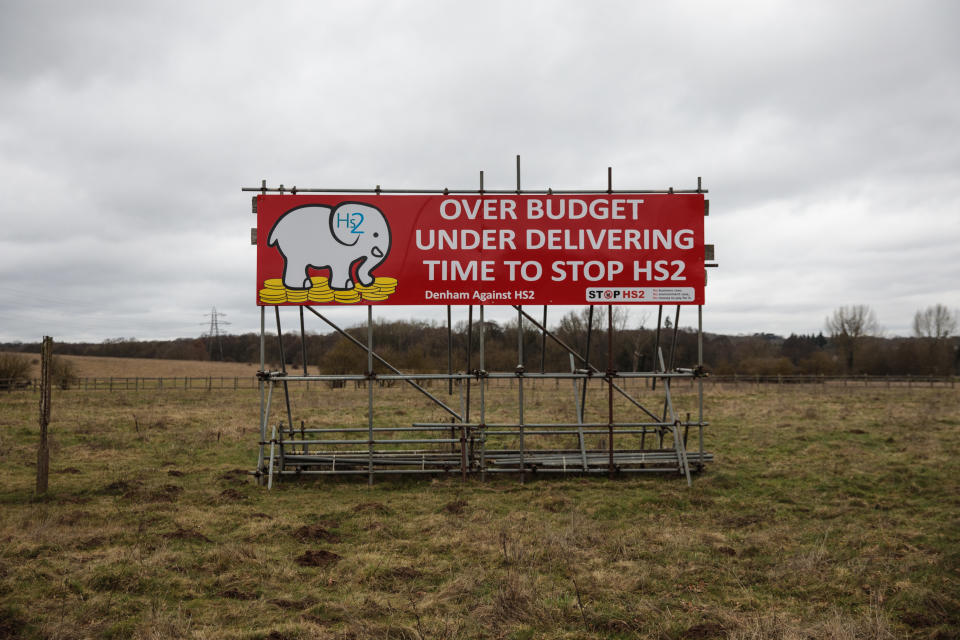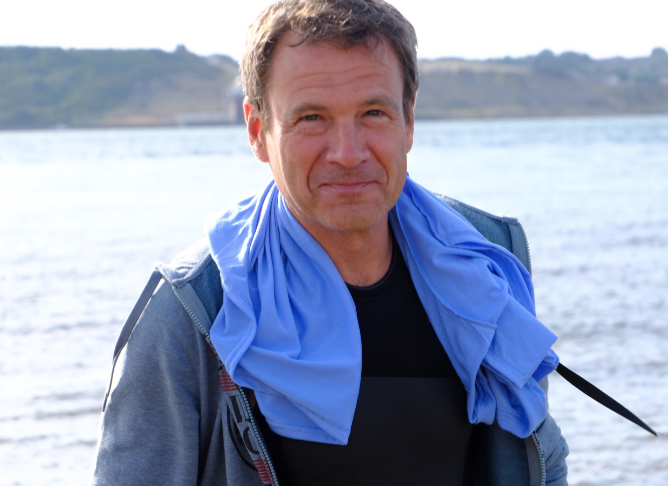Bob Seely MP resigns from Government role over HS2

Department for Environment, Food and Rural Affairs Parliamentary Private Secretary Bob Seely has resigned from government over its support for the high-speed rail project, HS2, Yahoo Finance UK can reveal.
Seely, who was appointed to the role in Defra in March, abstained on a vote regarding the project on Monday night, and announced via press release he was leaving his role as a government aide when approached for comment by Yahoo Finance UK.
Sources close to Seely said he felt the project had grown too expensive, and therefore abstained on the bill.
In his resignation letter, Seely said “I knew that abstaining from the vote would mean I could not continue as a PPS but on the issue of HS2 I did not feel that I could in good faith vote to support it while having consistently spoken out about the spiralling costs of the project, whilst in the UK regions and in constituencies such as the Isle of Wight we have suffered from historic under-investment on infrastructure.
“I, like my predecessors, have continuously lobbied government on the significant challenges we face from being an Island. But for decades we have been overlooked - our ferry system was privatised without any public service obligations whilst the Island Line railway rolling stock dates from the 1930s.
READ MORE: Even HS2's own stats show rail line's massive London bias
“The campaign for fair funding for the Island will be fact-based and scrutinised carefully by the government. That is the standard that we expect, but I don’t feel that this standard is being applied to HS2, a project that has seen its cost spiral out of control and which is likely to reach a staggering £400 million per mile of track.
"We are entering a new phase of Government with the imminent election of a new Party Leader and Prime Minister and I look forward to the opportunities that brings, especially in pushing hard for our Island agenda.”
It is unclear whether Seely resigned immediately after voting against the Government on Wednesday, as a spokesperson for Seely did not confirm he had left his role during a comment call from Yahoo Finance UK that morning.
The proposed rail link between London and the north has been mired in controversy. Conservative party leadership frontrunner Boris Johnson recently hinted that he would call for a review into the controversial £56bn ($68.4bn) project, according to the Financial Times.

Seely is considered somewhat of a rising star within the Conservative Party, having been elected in 2017 after a career in the military and media. He served in Iraq, Afghanistan and Libya with the British Army.
Before his time in the military, Seely was a journalist for The Times and the Washington Post, predominantly based in Eastern Europe. Seely also had brief stints working in academia, as a research associate at the University of Oxford and as a fellow at Brown University’s Watson Institute.

 Yahoo Finance
Yahoo Finance 